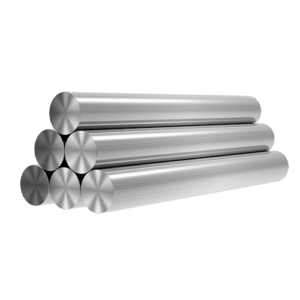Welcome to My Blog!
Before we dive into the content, I’d love for you to join me on my social media platforms where I share more insights, engage with the community, and post updates. Here’s how you can connect with me:
Facebook:https://www.facebook.com/profile.php?id=100090063158454
Now, let’s get started on our journey together. I hope you find the content here insightful, engaging, and valuable.
Introduction

The Power of Precision: Stainless Steel Fabricators
Stainless steel fabricators are the skilled artisans who transform raw materials into functional and aesthetically pleasing stainless steel components. These experts play a crucial role in various industries, from architecture and construction to food processing and medical equipment. By leveraging their expertise in cutting, bending, welding, and assembling stainless steel, fabricators ensure the creation of durable, corrosion-resistant, and hygienic products.
Understanding Stainless Steel Fabrication
A Deep Dive into the Process
Stainless steel fabrication is a meticulous process that requires precision and skill. It involves cutting stainless steel sheets, pipes, and other materials into precise shapes using advanced techniques such as waterjet cutting, laser cutting, and plasma cutting. The cut pieces are then carefully bent, formed, and welded together to create the desired components.
The Art and Science of Welding Stainless Steel
Welding is a critical step in stainless steel fabrication, requiring skilled welders to ensure strong and durable joints. Different welding techniques, such as TIG (Tungsten Inert Gas) welding and MIG (Metal Inert Gas) welding, are employed to achieve optimal results. After welding, the fabricated components may undergo additional finishing processes, such as grinding, polishing, and surface treatments, to achieve the desired appearance and performance.
Why Choose Stainless Steel?
A Superior Material for Demanding Applications
Stainless steel has earned its reputation as a superior material due to its exceptional properties:
- Unmatched Corrosion Resistance: The presence of chromium in stainless steel creates a protective oxide layer that prevents rust and corrosion, making it ideal for outdoor applications, marine environments, and food processing facilities.
- Exceptional Durability: Stainless steel is highly resistant to wear and tear, ensuring long-lasting performance even in demanding conditions.
- Superior Hygiene: Its smooth surface and non-porous nature make it easy to clean and sanitize, making it a preferred choice for healthcare facilities, food processing plants, and pharmaceutical industries.
- Aesthetics: Stainless steel’s sleek and modern appearance enhances the visual appeal of any project, whether it’s a contemporary kitchen appliance or a high-rise building.
Key Factors to Consider When Selecting a Stainless Steel Fabricators
Choosing the Right Partner for Your Stainless Steel Projects
When selecting a stainless steel fabricators, it is crucial to consider the following factors to ensure the success of your project:
- Experience and Expertise: Look for stainless steel fabricators with a proven track record in your specific industry, as they possess the knowledge and skills to handle unique challenges and deliver high-quality results.
- Certifications and Accreditations: Certifications such as ASME, AWS, and ISO 9001 demonstrate a commitment to quality, safety, and environmental responsibility.
- Capabilities and Capacity: Ensure the stainless steel fabricators has the necessary equipment, technology, and workforce to handle the scope and complexity of your project.
- Customer Service and Communication: A responsive and customer-oriented approach is essential for effective collaboration and timely project delivery.
Key Considerations for Selecting a Stainless Steel Fabricators
| Factor | Importance |
|---|---|
| Experience | Demonstrates a deep understanding of stainless steel fabrication and industry-specific requirements. |
| Certifications | Ensures compliance with quality standards and safety regulations. |
| Capabilities | Verifies the fabricator’s ability to handle your project’s scope and complexity. |
| Customer Service | Fosters effective communication and ensures a positive project experience. |
| Capacity | Guarantees timely project completion without compromising quality. |
| Location | May influence logistics and costs, especially for large or complex projects. |
| Quality Control | Ensures adherence to specifications and industry standards. |
| Project Management | Provides efficient planning, coordination, and oversight. |
| Safety Record | Prioritizes worker safety and minimizes risk. |
| Environmental Responsibility | Adheres to sustainable practices and minimizes waste. |
Common Applications of Stainless Steel Fabrication
A Versatile Material for Diverse Industries
Stainless steel fabrications find applications in a wide range of industries, including:
- Architecture and Construction: Structural elements, cladding, railings, and decorative features that enhance the beauty and durability of buildings.
- Food Processing: Equipment, tanks, and conveyor systems that meet stringent hygiene standards and ensure food safety.
- Chemical Processing: Piping, vessels, and heat exchangers that withstand corrosive chemicals and extreme temperatures.
- Pharmaceutical Industry: Pharmaceutical equipment and cleanroom components that maintain sterile environments.
- Medical Equipment: Surgical instruments, hospital furniture, and laboratory equipment that require precision, durability, and hygiene.
- Automotive Industry: Exhaust systems, fuel tanks, and other components that contribute to vehicle performance and longevity.
- Aerospace Industry: Aircraft components that must withstand extreme conditions and rigorous safety standards.
The Future of Stainless Steel Fabrication

Emerging Trends and Innovations in Stainless Steel Fabrication
The stainless steel fabrication industry is constantly evolving, driven by technological advancements and changing market demands. Some of the latest trends shaping the future of the industry include:
- Additive Manufacturing: 3D printing of stainless steel components offers greater design flexibility, reduced lead times, and the ability to create complex geometries.
- Smart Manufacturing: The integration of IoT and automation technologies is improving efficiency, productivity, and quality control in stainless steel fabrication.
- Sustainable Practices: Stainless steel fabricators are adopting environmentally friendly processes and materials to minimize their impact on the planet.
- Advanced Materials: The development of advanced stainless steel alloys with enhanced properties is expanding the possibilities of stainless steel fabrication.
Conclusion
Selecting the right stainless steel fabricators is a critical decision that can significantly impact the success of your project. By carefully considering the factors discussed in this guide, you can ensure that your project is completed to the highest standards of quality, durability, and aesthetics.
FAQ
What is the difference between stainless steel and mild steel?
Stainless steel is an alloy of steel that contains chromium, which forms a protective oxide layer that prevents rust and corrosion. Mild steel, on the other hand, is a carbon steel that is susceptible to rust and corrosion.
How is stainless steel fabricated by stainless steel fabricators?
Stainless steel fabrication involves a series of processes, including cutting, bending, forming, welding, and finishing, to create custom components and structures.
What are some common stainless steel grades used in fabrication?
Common stainless steel grades used in fabrication include:
304: A versatile grade with good corrosion resistance and formability.
316: A high-nickel grade with excellent corrosion resistance to chloride-containing environments.
430: A ferritic grade with good corrosion resistance and formability.
